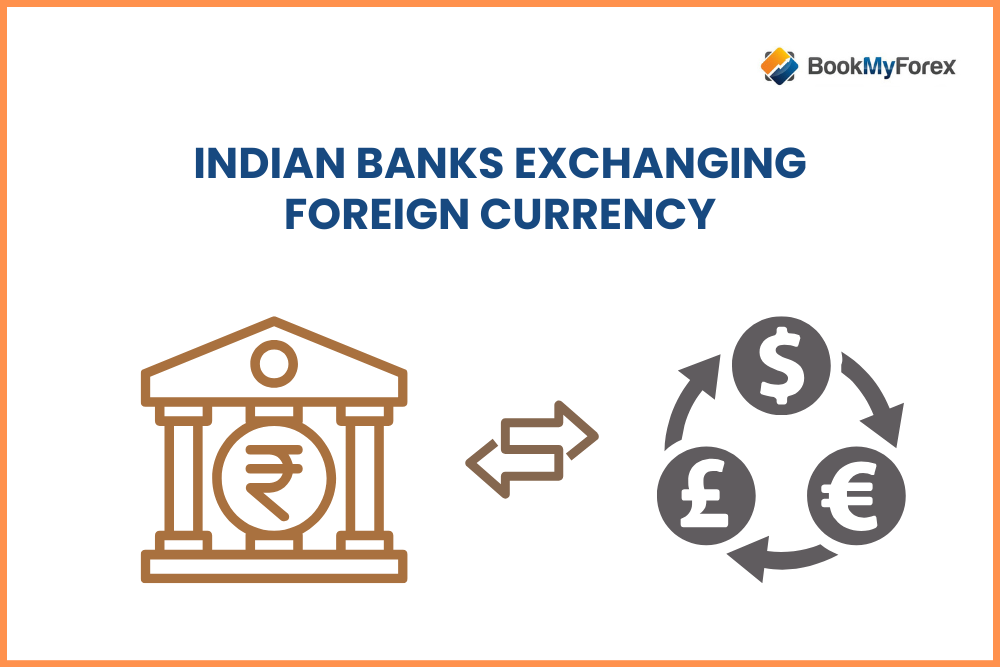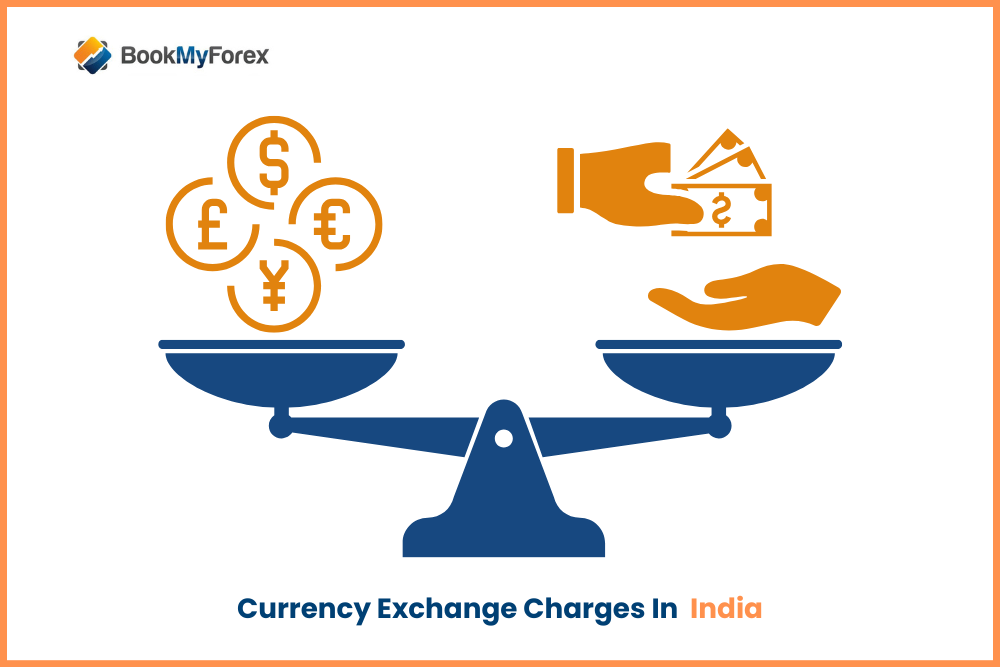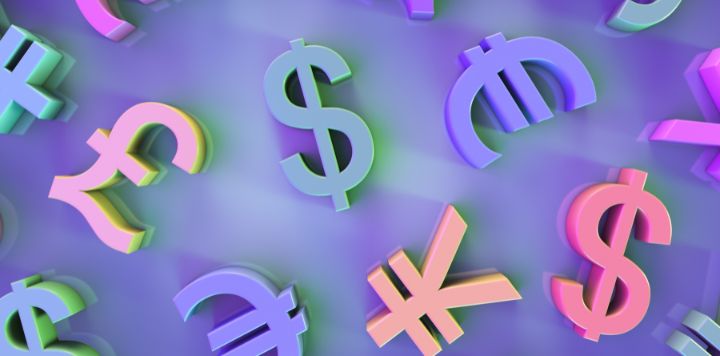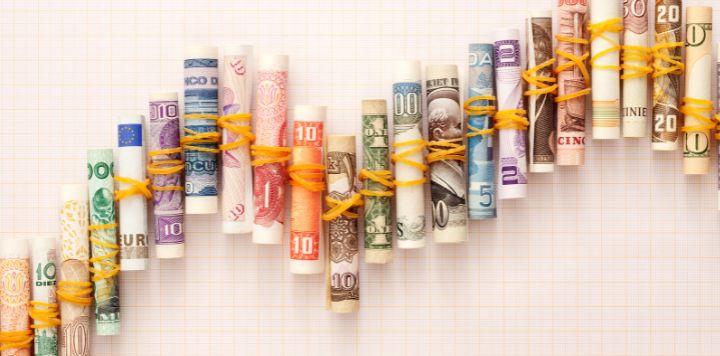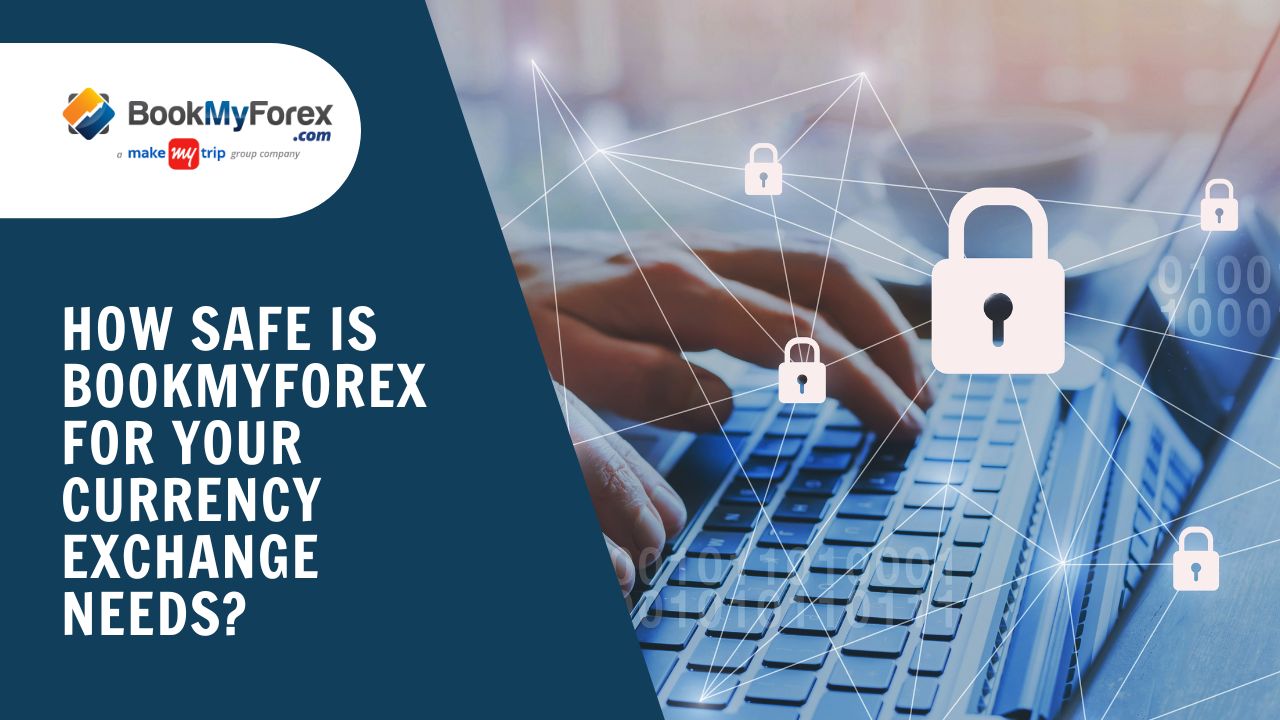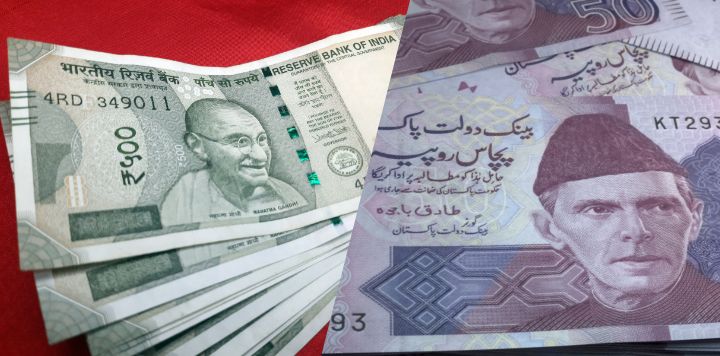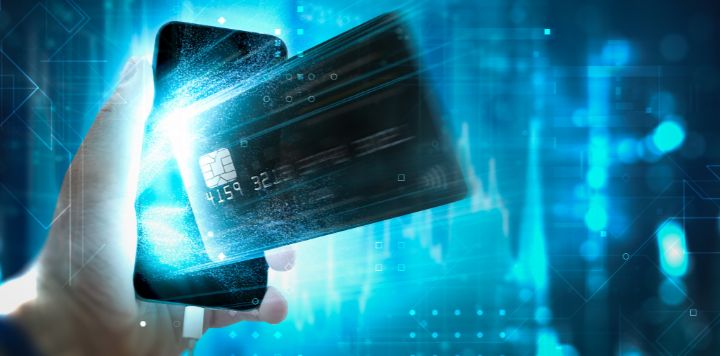If I had a rupee for every time someone asked me, “Kis bank se currency exchange karwaun?” I’d be a millionaire by now. But jokes aside, I get it. Exchanging foreign currency can be confusing! Been there, done that.
Major Indian banks like SBI, HDFC, ICICI, and Axis provide currency exchange services, but often impose high rates with hidden markups and offer a less convenient experience. In contrast, platforms like BookMyForex offer live & transparent rates, 24/7 online booking, and same-day currency delivery.
I’ve done all the late-night Googling on popular Indian banks, compared their rates, and now, I’m sharing everything with you.
Major Indian Banks That Offer Foreign Currency Exchange
1. HDFC Bank
According to HDFC Bank’s website, there is “no charge” for buying or selling foreign currency notes.
However, that is somewhat misleading. HDFC’s cash foreign exchange rates have substantial markups.
For example, on July 24, 2025, the USD currency note selling rate was INR 88.55 while the buying rate was INR 84.04. The interbank rate at that time was INR 86.39. That’s more than 2.5% markup.
Instead of charging explicit fees for cash transactions, HDFC recovers its costs and profit through these wider rate markups. This hides the true cost from customers.
Plus, the rates they show are only “indicative” and can change anytime before the transaction, making it hard to know the exact cost upfront.
To buy or sell currency notes from HDFC Bank, you must visit a physical branch. There’s no clear online ordering or doorstep delivery for notes, unlike their forex card services. This makes the process slow and inconvenient.
Hence, HDFC’s “no charge” claim hides real costs in poor exchange rates, and customers face inconvenient, branch-only processes with no online option. This makes buying or selling currency notes with HDFC expensive and outdated.

2. ICICI Bank
ICICI Bank’s currency note rates have an even higher rate markup. It is about 2.41% on selling USD and around 3.83% on buying USD compared to the interbank rate.
Nevertheless, ICICI provides an online currency purchase option, although limited to just a few. For now, you can only purchase US dollars (USD), Euros (EUR), and British pounds (GBP) notes online.
Orders must be booked a minimum of 3 working days before travel, and delivery can take an additional 2 working days after the bank contacts you, meaning it may not suit your last-minute requirement.
Also, you can only sell back any leftover foreign currency notes to the bank only in-person at the branch, since there is no online option for this type of transaction.
The bank’s cancellation policies are also not customer-friendly. Customers face strict cancellation and refund rules, making the process less flexible if plans change.
According to the ICICI policy, if a customer cancels, any loss due to forex rate fluctuations will be deducted from the refund, but any profit from favorable rate changes stays with the bank.
This means the customer bears all the risk of currency movements, while the bank keeps any gains. Unfair, isn’t it?
These factors make the process inconvenient, potentially expensive, and far from the seamless, customer-friendly digital experience travelers expect today.
3. Axis Bank
Axis Bank’s currency note services also come with a huge markup and provide no option for rate locking or real-time transparency to customers.
For example, on July 24, 2025, the USD currency note selling rate was INR 88.21 while the buying rate was INR 84.39. The interbank rate at that time was INR 86.39. That’s more than 2% markup.
Another drawback is the presence of a potential fee for currency note transactions. Axis Bank’s “Schedule of Charges for Foreign Exchange Transactions” lists a fee of Rs. 100 for the sale of foreign currency notes.
Moreover, the process of buying and selling currency notes at Axis Bank remains largely dependent on physical branch visits, lacking modern digital convenience.
Their “Foreign Currency Cash” webpage directs customers to “LOCATE NEAREST BRANCH” for applying or encashing foreign currency notes.
So, there is no clearly defined online ordering system with doorstep delivery for customers.

4. State Bank of India (SBI)
While SBI, as a public sector bank, does apply a markup on currency notes, this markup is generally lower compared to private banks.
For example, on July 24, 2025, the USD currency note selling rate was INR 87.25 while the buying rate was INR 84.85. The interbank rate at that time was INR 86.39. That’s up to a 1.5% rate markup.
That said, there is still a “Transaction Fee” for currency exchange at an SBI branch, which “varies depending on currency and amount”, a vague statement for customers with no way to ascertain what they would be charged.
Another significant barrier for customers is that SBI generally restricts foreign currency note exchange to existing account holders only, effectively excluding many potential users.
Moreover, these transactions must take place at designated “Forex-approved branches,” which are limited in number and mainly concentrated in Tier 1 cities.
This makes locating and accessing such branches a cumbersome task for many travelers, especially those in smaller towns or rural areas.
At SBI branches, the primary foreign currency notes readily available are typically limited to USD, GBP, and EUR. Availability of other currencies is uncertain and often very limited, making it difficult for travelers needing less common currencies.
So, while SBI has made strides in online forex services, these primarily focus on foreign remittances abroad and do not support the buying or selling of physical currency notes, leaving customers reliant on outdated and inconvenient branch visits.
Why Banks Are Still the First Choice for Many
Travelers often go to their banks for foreign currency exchange because they see them as trustworthy, already have accounts there, and find it convenient to visit a nearby branch.
Since banks are authorized to deal in forex, they’re seen as a safe option. But while this might seem convenient, it often comes with poor rates and high fees.
Banks use their wide network of branches and existing customers to keep forex services running, which means they don’t feel much pressure to offer better rates or lower fees.
Unlike new-age online platforms that have to win customers with great prices and convenience, banks don’t rely on forex as a major source of income.
It’s just one of the many things they do. So, banks don’t always feel the need to offer the best deals.

How Bank Exchange Rates for Cash Can Be Misleading
One of the biggest, but least noticed, costs when buying foreign currency notes from banks is hidden in the exchange rates they offer.
Banks use different methods to set rates that work against customers, allowing the banks to make a good profit while customers end up paying more.
1. The Trick of “Competitive” Rates
If you check carefully, you will find that the rates for physical currency notes usually have the biggest gap between buying and selling prices. This means banks buy foreign cash from you at a much lower rate and sell it to you at a much higher rate.
For example, ICICI Bank clearly shows different rates for buying and selling “currency notes”. For USD, the currency note selling rate was INR 87.45 while the buying rate was INR 82.12 on June 3, 2025. The interbank rate at that time was INR 85.39.
Because of this, when customers buy foreign currency notes, they pay more in Indian Rupees, and when they sell those notes, they get fewer Rupees back.
2. Hidden Profits on Currency Notes
Let’s consider the ICICI Bank example again. The rate markup based on the above rate values is approximately 2.41% on selling and around 3.83% on buying against the true interbank rate. The same is true for other banks such as HDFC Bank, SBI Bank, Axis Bank, and others.
When it comes to physical currency notes, this hidden markup is where banks make a big chunk of their profit. It works like an extra commission that most customers don’t even realize they’re paying.

3. Offering Opaque Exchange Rates
Another big problem is that the rates banks show online or on their display boards are often just “indicative,” meaning they can change at any time before or during order booking.
Most bank websites have disclaimers saying the final rate may be different when you actually go to buy or sell currency. Banks like ICICI and HDFC Bank clearly say that the final rate will be the one at the time of the transaction.
This makes things uncertain for customers. You might see one rate online and get another rate at the counter. It becomes harder to plan your travel expenses or compare rates with other providers.
And if you need cash urgently, you may end up accepting a poor rate simply because you have no better option at that moment.
4. The “Cash Handling Premium”
Banks charge higher rates for currency notes compared to electronic options like forex cards or wire transfers. This extra cost is often called a “cash handling premium.”
Handling physical cash involves more work and higher costs, like transport, storage, insurance, trained staff, and checking for fake notes. These things make cash more expensive for banks to manage.
So, when you choose to buy cash from a bank, you’re quietly paying for all the behind-the-scenes effort and usually more than you would through an online forex provider, which may have lower costs or better pricing.

5. Lack of Information
Most of the time, people purchasing foreign currency notes do not know how the forex market works and have no clue about the real-time forex data.
Banks, however, do know how the forex market works. Banks access world currencies in the forex market, and are generally able to buy currencies at a wholesale rate and sell them to you at a retail rate.
Most of the time, customers have no way to check if the price is reasonable or not. This means banks can easily profit from customers.
Why Getting Foreign Cash from Banks Feels Like a Task
Aside from the high rates, getting foreign currency notes from Indian banks often means dealing with a lot of paperwork and slow processes. These hassles make the whole experience frustrating and far from smooth for anyone trying to get foreign cash.
1. You Still Have to Show Up in Person
Even though digital banking has improved a lot, most banks still handle currency notes the old-school way, i.e., through physical branches only.
For example, SBI asks customers to find and visit a “forex-approved” branch. ICICI lets you buy some currency online, but if you want to sell leftover cash, you have to go to a special ICICI forex branch.
HDFC and Axis Bank also expect walk-ins, and tell customers to visit their forex-enabled branches.
This means customers often have to travel, wait in queues, and deal with limited banking hours. For people living outside major cities, it can be even harder since fewer branches are fully set up to handle forex transactions properly.

2. Too Much Paperwork
When you exchange currency notes at banks, you usually have to fill out a lot of forms and submit many documents. Banks say this is because of the RBI rules and regulations.
While these rules are important, the amount of paperwork can feel overwhelming and confusing for everyday customers.
3. Not for Last-Minute Travelers
Getting foreign currency notes from banks usually takes time. Even if you order online, it can take several working days for your cash to be ready or delivered.
If you try to buy at a branch, it depends on whether they have enough currency on hand, how fast the staff are, and the bank’s own processes, so there’s no guarantee of quick service.
For example, ICICI recommends customers to order at least three working days before travel, with delivery happening two days after they contact you.
Because of these delays, banks aren’t great if you need foreign cash urgently. You have to plan well in advance, which isn’t always possible.

4. Limited Currency Stock
Not all branches have sufficient stock in every currency you may want. Additionally, the options you may get in cash currency may be limited in denominations as well.
For instance, Axis Bank claims to offer more than 14 currencies, but what your local branch has available could be very different.
SBI’s most branches only stock major currencies (USD, GBP, EUR), so you may need to either settle for these more widely accepted currencies or visit multiple branches to get the currency of your choice.
Better Options for Foreign Currency Exchange
The above drawbacks for different banks, such as limited currency availability, huge exchange rate markups, branch-dependent processes, etc, are not individual banks’ issues. These drawbacks are largely mirrored across major Indian banks.
In contrast, online forex marketplaces have emerged as more customer-centric alternatives by addressing many of the core limitations of traditional banking channels. With lower overheads and digital-first operations, these online platforms offer better rates than banks.
Among these platforms, BookMyForex leads the way with added benefits that go beyond the industry standard:
- Lowest Rate Guarantee: BookMyForex is India’s only platform with a rate guarantee program. Get guaranteed lowest rates, or claim 2X cashback if you find a better rate elsewhere.
- 24×7 Online Booking: Book foreign exchange anytime, from the comfort of your home. There is no need to visit a branch or wait for banking hours.
- Same-Day Currency Delivery: Enjoy same-day doorstep delivery in over 50 cities across India, ideal for urgent travel plans.
- Extensive Currency Options: Access to over 40 foreign currencies in note form, far surpassing what most banks or online competitors provide.
- No Hidden Fees or Commissions: What you see is what you pay. No surprise deductions, no fine print.
- Book Now, Pay Later: Need some time before payment? BookMyForex lets you lock in your desired rate for up to 3 working days, a unique offering not available with any bank.
- Rate Alert Option: Waiting for a better rate? Use the BookMyForex platform to set your desired rate, and we’ll notify you the moment it’s live.
- Cashback Offers: Enjoy regular cashback offers and special seasonal deals, an added bonus on top of competitive pricing.
